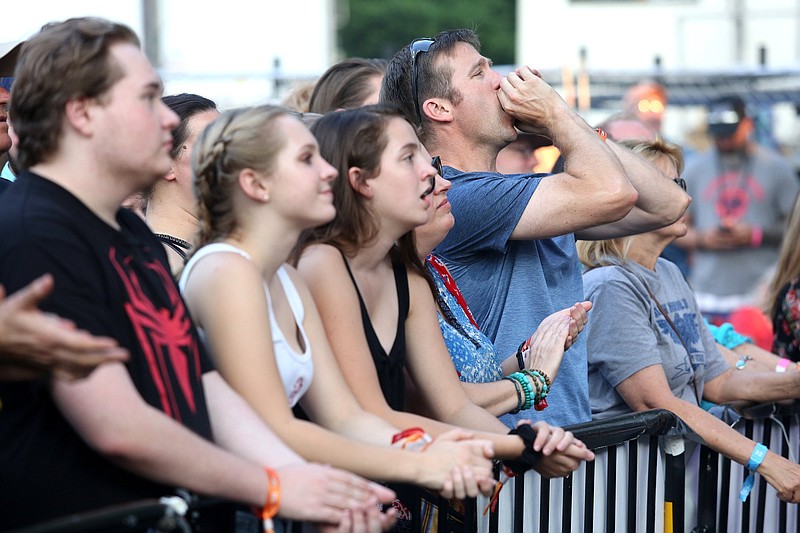January is typically a time when people of my ilk - ink-stained wretches - tend to take stock of where they've been and where they're going.
I've spent the last almost two years trying to make sense of the music and entertainment industry for my day job at the Chattanooga Times Free Press and my side gig with "The What Podcast," a show I co-host that takes a deep dive into the live music world. One of the things on my mind heading into 2022 is what the live music landscape will look like this year. Will there be noticeable changes?
I think we will see some pandemic-inspired safety measures continue, such as sanitation zones everywhere. And we'll probably see more security at some entrances. Whether the tragic deaths at the Astroworld in Houston will have any impact on other festivals is to be determined. But many will remember that once the lawyers and insurance people got involved after the deaths of fans at Cincinnati's 1979 The Who concert, arenas and large venues started doing away with first-come, first-served festival seating and moved to assigned seating.
I understand the move, but personally I loved festival seating and the idea that people could get closer to the stage. It was exciting and unpredictable - which is what good rock 'n' roll should be.
But it was also dangerous, hence the changes.
One thing we are already seeing and will likely continue to see is that the big boys of the concert promo universe - The Live Nations, the C3s - are going to keep getting bigger because they have a large cache of cash, and they aren't afraid to use it.
Is that a good thing or a bad one? It depends. If you are in these promoters' networks, it could mean a larger pool of acts to draw from. For example, venues such as Soldiers and Sailors Memorial Auditorium and Tivoli Theatre work with Knoxville-based AC Entertainment, now owned by Live Nation - one of the country's leading live entertainment companies.
Because of that relationship, we could see some acts come through that wouldn't normally stop here.
But the smaller, independent venues and promoters, who have done all they could just to hang on during the pandemic, don't have the cash to go after big acts - and they may not want to go after risky mid-level or unknown acts, which means they are being even more conservative in who they book. As a result, lesser-known or unproven bands have fewer places to play and grow an audience.
Every band from the Stones to the Beatles to Kanye started somewhere, and they started small. Eliminating the independent venues and promoters could limit access for fans. Moreover, it could impact things like radius clauses, where bigger tour promoters prohibit performers from holding additional concerts within a certain radius of cities where they're scheduled to appear.
As we come out of a very stagnant period where most people were stuck at home, all of the big festivals are looking for lineups that will bring fans back to them, and while they have been playing nice, so to speak, for the last year or so, 2022 could be a time when the big foot of the big guys gets even bigger.
That means an event such as Riverbend Festival, which is relatively small and independently produced, will be going after some of the same acts as Atlanta's Shaky Knees or 420 Fest, and a hard non-compete radius clause could eliminate a band from playing here for weeks or months after their Atlanta appearances.
We should start seeing lineups released for upcoming festivals in the next several weeks, so it will be interesting to see how this plays out.
